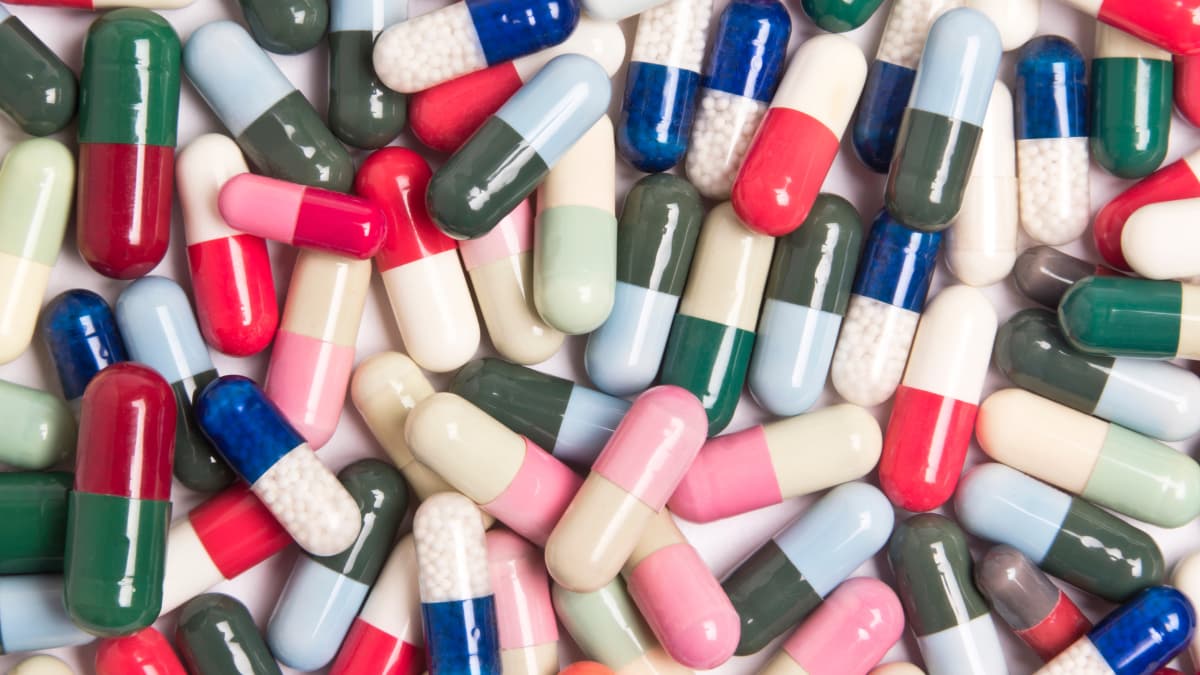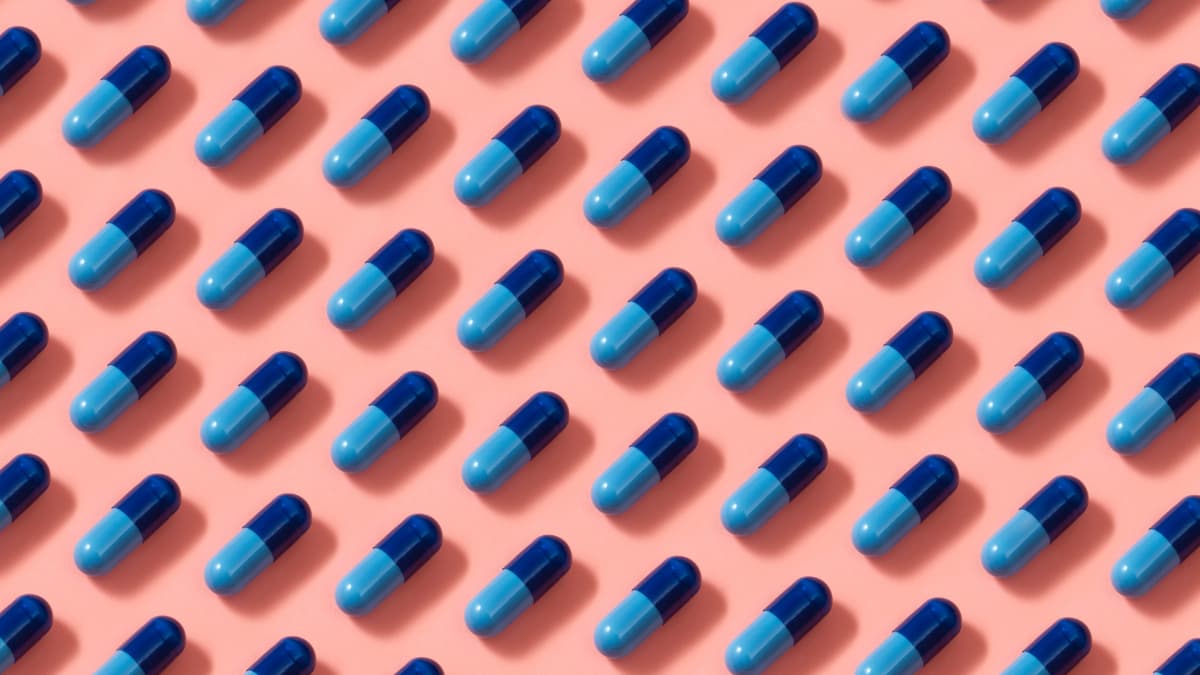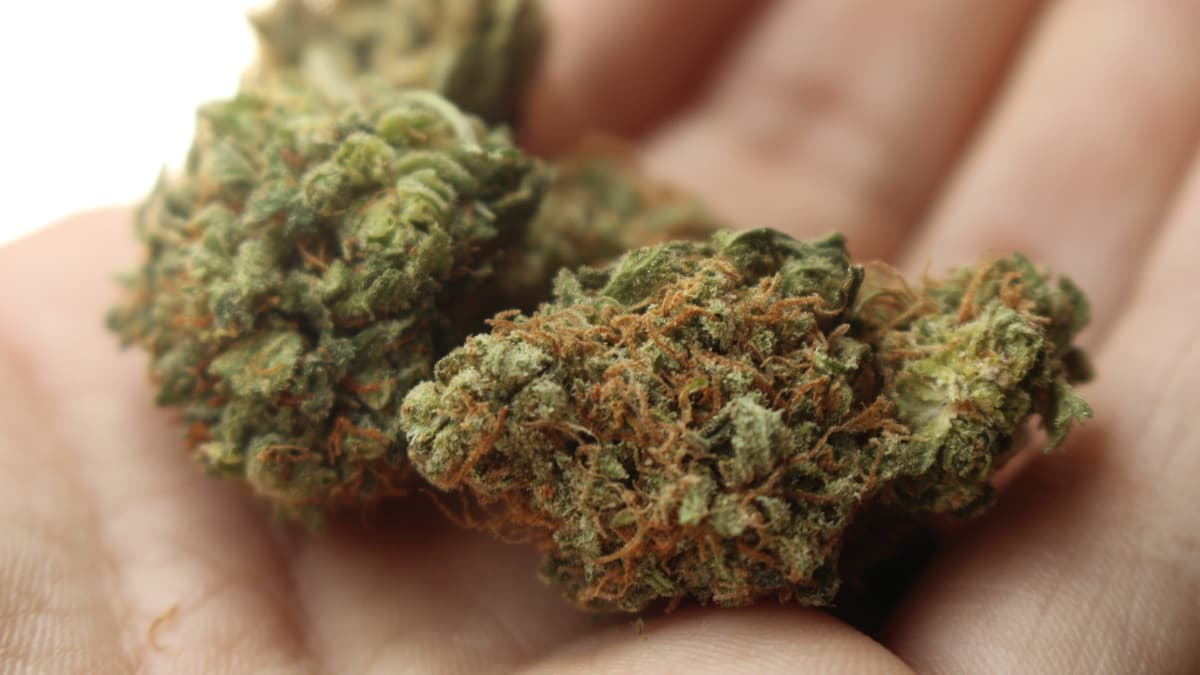Can You Smoke Weed on Antibiotics?
Commonly prescribed to treat different bacterial infections, antibiotics help kill bacteria or stop it from spreading.
If you’re a cannabis consumer currently taking antibiotics or plan on it soon, you’ve probably asked yourself a very important question.
Can you smoke weed on antibiotics? How safe is it to combine cannabis with antibiotics?
While there’s little research on the subject, there aren’t any reports of any issues when combining the two. Studies show that cannabis even contains antibacterial properties of its own!
Keep reading to discover all you need to know about consuming cannabis when beating that infection with antibiotics.

Common Antibiotics
Antibiotics are typically prescribed for a moderate to severe bacterial infection. You should always take them as often and long as instructed by your provider, unless you have known allergies or side effects.
There’s actually increasing in-vitro (lab) evidence demonstrating cannabinoids and terpenes may synergistically enhance the action of common antibiotics and fight antibiotic resistance. However, it’s too early to tell whether there is any outcome difference in humans.
Following you’ll find a list of the most commonly used antibiotics. If you’re currently on a round of antibiotics, chances are you’ll find it here.
Amoxicillin
Amoxicillin is used to treat specifiic infections such as:
- Pneumonia
- Bronchitis
- Ear infections
- Nose infections
- Throat infections
- Urinary tract infections
- Skin infections
- H. pylori (the bacteria responsible for ulcers)
Amoxicillin usually comes in the form of a capsule, tablet, chewable tablet, or suspension liquid. It’s typically prescribed to be taken 2-3/day with or without food. The length of treatment depends on your condition.
Azithromycin
Azithromycin is an antibiotic commonly prescribed to treat the following:
- Pneumonia
- Bronchitis
- Sexually transmitted diseases
- Infections of the ears
- Lung infections
- Sinus infections
- Skin infections
- Throat infections
- Reproductive organs infections
- Mycobacterium avium complex (a lung infection affecting immunocompromised, or HIV/AIDS patients)
Azithromycin comes in the form of tablets, extended-release suspension liquids and other suspension liquids. It’s typically taken 1/day for 1-5 days with or without food.
Cephalexin
Cephalexin is an antibiotic used to treat certain infections, such as:
- Pneumonia and other respiratory tract infections
- Bone infections
- Skin infections
- Ear infections
- Genital infections
- Urinary tract infections
Cephalexin comes in the form of a tablet, capsule and suspension liquid. It is taken orally with or without food every 6 or 12 hours for 7 to 14 days.
Clindamycin
Clindamycin is used to treat serious infections that can’t be treated by other types of antibiotics, and is typically used to treat some types of infections that affect the following:
- Lungs
- Skin
- Blood
- Female reproductive organs
- Internal organs
It comes in the form of a capsule and liquid solution. It’s usually taken 3-4/day. The length of treatment depends on the condition being treated.
Note: Clindamycin is known to cause side effects like diarrhea or colitis. Like THC and CBD, clindamycin is also metabolized by the same CYP3A4 enzyme causing a drug interaction possibility.
What this means is that taking them at the same time will slow down processing time, thus increasing the levels of THC, CBD, and clindamycin; and the possibility of their side effects. It’s important to speak with your doctor to understand how this medication may affect you.

Doxycycline
Doxycycline is used to prevent and treat an array of infections, including:
- Malaria
- Ance
- Rosacea
- Bioterrorism infections (such as anthrax and tularemia)
Doxycycline comes in the form of a capsule, tablet, delayed release tablet and suspension liquid. It’s typically taken 1-2/day.
Metronidazole
Metronidazole is an antibiotic used to treat bacterial infection in the following areas of the body:
- Reproductive system
- Gastrointestinal tract
- Skin
- Heart
- Bones
- Joints
- Lungs
- Blood
- Nervous system
It is also used to treat sexually transmitted diseases (STDs) and bacterial vaginosis.
Metronidazole comes in the form of a capsule, tablet or extended release tablet. It is typically taken after a meal. It can be taken as a one time dose or two to four times daily for up to 10 days or more. The extended release tablets are usually taken once daily 2 hours after a meal for 7 days.
Levofloxacin
It is used to treat certain types of infections which may include:
- pneumonia
- kidney infections
- prostate infections
- skin infections
It is also used to prevent anthrax infections and plague infections that may be spread intentionally. It may also treat conditions like bronchitis, sinus infections, or urinary tract infections. It’s typically a treatment option used after other antibiotics did not work.
It comes in a tablet form and a liquid solution. It is usually taken once a day with the length of treatment depending on the condition.
Talk with your doctor about the risks involved with taking levofloxacin. They will be able to discuss your options and help you find the best solution for your specific condition.
Can You Mix Cannabis And Antibiotics?
One of the biggest concerns about taking cannabis with antibiotics is safety.
Is it safe to smoke weed while taking certain antibiotics?
Any potential drug interactions of cannabis with other drugs like antibiotics should always be taken into consideration. There’s been little research, however, to determine the effect cannabis might have when taking antibiotics.
That said, there aren’t any reports of negative repercussions of mixing cannabis and antibiotics together. Even with the increased use of cannabis since the rise of legalization. More people consume cannabis than ever before, and there have been zero reports of negative interaction with antibiotics.
If you want to mix cannabis and antibiotics, be sure to talk to your doctor beforehand. They may know of an option that is better than another when used with cannabis.
Does Weed Interact With Antibiotics?
If you smoke weed, what’s going to happen if you’re taking certain antibiotics?
Without clinical studies to understand exactly how cannabis and antibiotics work together, it’s difficult to determine how the two interact together.
Mixing cannabis while on an antibiotic treatment is thought to be safe, but it’s always important to exercise caution, as there could be adverse reactions. This is true of combining any medications that haven’t been studied together.
Keep in mind that there are certain medications known to interact with cannabis. For example, Benadryl, Klonopin, and Prozac.
Most drug interactions are mild but there are 27 medications known to have severe interactions according to Drugs.com.
Other reputable interaction checkers such as this one from Penn State College of Medicine have identified a list of 57 medications with potential drug interactions that may cause a narrow therapeutic index (NTI). They also have an expanded list of 139 medications that could have a potential interaction.
While it’s believed there’s minimal risk when it comes to cannabis and conventional antibiotics, various reactions could occur when combining the two.
If a substance affects a particular system in the body, it may change the way the system metabolizes medications taken with that substance.
For example, in addition to CYP3A4, cannabis is known to impact specific and large families of enzymes in the liver, such as CYP450 enzymes. They’re responsible for breaking down different chemicals in the body, and essential for the metabolism of various medications.
These enzymes control the biosynthesis of some macrolide antibiotics. If cannabis use inhibits the production of these enzymes, you may be more vulnerable to side effects associated with these types of antibiotics.
Some of the side effects of this antibiotic class include vomiting, nausea and diarrhea. If you notice any of these side effects while taking antibiotics, you may want to consider refraining from or cutting down on cannabis consumption during your antibiotic regimen.
Always tell your doctor about any drugs including medications and medical marijuana or hemp products you are taking.

Can you take edibles with antibiotics?
There isn’t any research that’s looked distinctively at how cannabis edibles might interact with antibiotics.
If you’ve ever consumed edibles that contain THC, however, you’re aware the effects can be much stronger than smoking it.
This is because when infused edibles are processed by the liver, a metabolite known as 11-hydroxy-THC is produced. Research estimates this metabolite is five times stronger than THC, which is why edibles tend to get you out of this world high.
The possible interaction of antibiotics of cannabis and antibiotics with liver enzymes combined with the potential of edibles to get you super baked, means that these effects may become intensified.
If you insist on eating edible while on antibiotics, you might not want to take them at the same time. Make sure you’ve got quite a few hours between each to avoid any potentially adverse reactions.
CBD and Antibiotics
CBD is considered well-tolerated with a favorable safety profile. The most commonly reported side effects include tiredness, diarrhea, and changes in weight. Compared to other drugs that could be used, CBD has a better side effect profile. Because of this, it is often used as an adjunct therapy with other treatments.
Some caution must be taken when taking CBD and antibiotics as CBD may cause drug interactions with certain medications. This is due to the relationship between CBD oil and the cytochrome P-450 enzyme system.
This system, located in the liver, contains more than 50 enzymes that help break down toxins in your body. Many common medications are processed in this system. Certain antibiotics, like penicillin, are inhibitors of this system.
The only antibiotics processed by the P-450 enzyme system are clarithromycin and erythromycin. If you’re taking these medications, CBD could slow down the time it takes your body to process them.
This is sometimes called the “grapefruit effect” because grapefruit also inhibits this system. This means CBD may increase the amount of time the mediation’s active ingredient is present in the system, and make side effects of both more likely.
All this said, a 2018 systematic review noted that “CBD generally has a low risk of clinically significant drug-interactions.”
More clinical research is needed regarding cannabis use along with other medications like antibiotics. With more data, we’ll be able to determine whether or not there are overall positive or negative side effects. Consult your doctor before taking CBD along with other medications.

Is Cannabis An Antibiotic?
While cannabis isn’t considered an antibiotic, there is mounting preclinical research to suggest that it may have antibacterial and anti-multidrug resistant properties.
In a 2008 study, researchers discovered that all five major cannabinoids (CBD, CBC, CBG, THC, CBN) contain “potent activity” against an antibiotic-resistant type of methicillin-resistant Staphylococcus aureus (MRSA).
The potential antibacterial properties of cannabis is further supported by a 2020 study. It found that cannabis is effective at targeting gram-positive bacteria and gram-negative organisms. This means it is able to target different kinds of bacteria with different physical structures. This includes multi-drug resistant pathogens.
Another 2020 study had similar findings, suggesting that cannabinoids could contain promise in the antimicrobial treatment of infections. The study specifically found CBD, CBC and CBG were promising because of their effectiveness without the psychoactive effects of THC.
Wrapping Up: Mixing Cannabis And Antibiotics
So should you smoke weed when taking antibiotics?
If your doc advises you against it, definitely take their advice. That said, there aren’t really any documented cases of adverse reactions from smoking marijuana on antibiotics.
There’s so little research on the subject, making it impossible to determine what adverse effects one might experience when combining the two.
If you’re interested in combining cannabis and antibiotics, it’s best to speak to your healthcare provider or a qualified physician.

